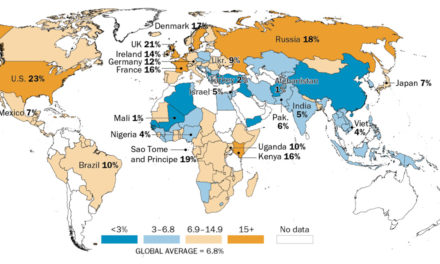Hundreds of attendees recently gathered at the “Restoring a Nation” conference held in Steubenville, Ohio to consider how America can be renewed with pro-family, pro-work economic and social policies that promote our Common Good.
One panel titled “Political Economy and Family Policy After Dobbs” examined the role of marriage in reducing the prevalence of abortion, how Hungary’s pro-family government policies have incentivized marriage and fertility, and how the state can use its power to promote family life.
The panel featured the following experts: Professor Darel Paul, Williams College; Professor Gladden Pappin, University of Dallas; and Professor Anne Hendershott, Franciscan University.
In her remarks, Professor Hendershott highlighted the importance of marriage, and how an increase in marriage can lead to a dramatic reduction in abortions.
“Married women account for only 14% of all abortions,” Professor Hendershott noted. So how do we reduce the number of abortions? In part by promoting marriage.
“The best part is Millennials and Gen Z really want to be married. We don’t think of them as traditional, but they are,” Professor Hendershott said.
She also added that one of the greatest obstacles to marriage today is the lack of marriageable men who can provide for a spouse or family. Good and honest jobs are one of the solutions to that problem, the professor posited.
Professor Pappin stated at the beginning of his remarks, “We need a whole of society approach to supporting the family … Another world is possible, namely, Hungary.”
In his remarks, the professor primarily focused on the pro-family policies that Hungary has implemented over the last decade and the positive impact it has had on promoting marriage and family formation.
“When you get out of the plane at the airport in Budapest, there are illustrations all over the jet bridge of a mother, a father, and their two young children and a small child on one of their shoulders, and it says, ‘Welcome to family friendly Hungary,’” Professor Pappin said.
“Compare it to an American jet bridge where we offer you additional ways to go into debt,” he jested.
Pappin noted that Hungary has been able to enact numerous pro-family policies because they have had an uninterrupted conservative government since 2010.
Hungary has “made a strong effort to reclaim public space,” Pappin said. “It is illegal in Hungary under their child protection law for companies to engage in public advertising campaigns advocating diverse and alternative sexual lifestyles.”
“It’s illegal for bookstores located within a certain distance of schools to sell books that contain aggressive pushes for alternative sexual lifestyles,” the professor said. “These things together help to create a more wholesome public space.”
Pappin, who last year moved his family to Hungary, said that when they arrived last year, “the billboards were dominated by a beautiful model, who is pregnant, advertising prenatal vitamins.”
Hungary has also used the power of the government in other ways to aggressively promote family life, one of which was to declare a year of families.
“Why can’t governors here declare a year of families?” Pappin asked.
“Hungary has set the goal of making marriage and childbearing more financially beneficial than the moment before birth,” he added. Usually, “during the key childbearing years, all the incentives of the system are not to get married, not to form a household; housing is becoming more expensive. So, the Hungarian system is designed to get you over the hump.”
Pappin also noted that the Hungarian government has enacted other economic policies to incentivize marriage and family formation, which include the following measures:
- If a woman has one child, her student loan payments are suspended for three years. If she has a second child, half of her remaining student loan balance is forgiven. If she has a third child, the remainder of her student loan balance is forgiven. “That is why people delay having children, so you have to address that,” Pappin said.
- A woman who has been in the workforce for at least two years prior to the birth of her child will receive 100% of her entire salary for six months after birth with no personal income tax paid, so she will in effect receive a pay raise. If she stays home after six months, she receives 70% of her prior salary up to age two, or age three for twins.
- Hungary also wants to get young people into homes. The country gives families a $30,000 grant toward the purchase of a home.
What has been the result of these pro-family policies? Pappin stated the following:
- The Hungarian fertility rate had fallen every year since the country was communist until 2010, when it suddenly reversed and has gone up every year, rising 27% through 2021.
- The number of marriages in 2010 was 35,000. The number of marriages in 2021 was 72,000, an over 100% increase.
- The number of divorces in 2010 was 24,000. That dropped to 18,000 in 2021.
- The number of abortions per year has collapsed by 50%.
“I don’t know of any other country that’s had a dramatic reversal in divorces and marriages like that,” Professor Pippin observed.
He concluded by noting that there is a lot to learn from the Hungarian model, even if we can debate what specific policies proposals should or should not be applied to America. Either way, promoting family should “involve the whole of society.”
Professor Paul also highlighted the social problems our society faces today, including the decline of marriage and fertility.
In 2020, the total fertility rate – or the number of children each woman is projected to have in her lifetime – fell to 1.6, “the lowest on record,” the professor said.
Professor Paul highlighted political parties in formerly communist Europe that are “right on cultural issues, left on economic ones,” – a combination that is lacking in the United States.
He argued that it is a part of the state’s prerogative to use its power to promote marriage through financial incentives, protect preborn life, and enact economic policies which promote work and family life. This in turn benefits the whole of society, i.e., the Common Good.
Photo from Shutterstock.






